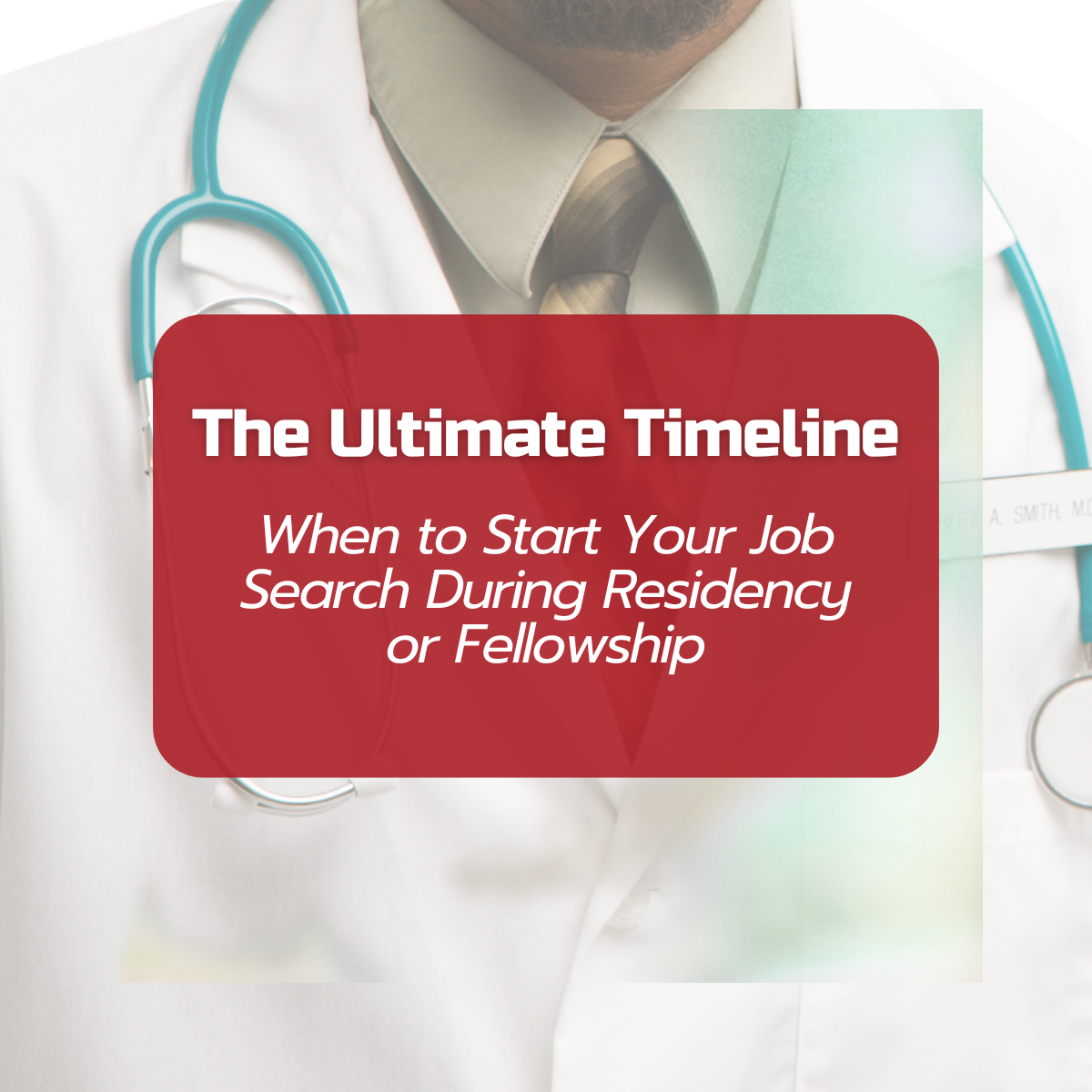The Ultimate Timeline: When to Start Your Job Search During Residency or Fellowship
For residents and fellows, the transition from training to practice is one of the most exciting (and stressful) moments in your career. Securing your first physician job is not only about landing the right salary — it’s about choosing a role that shapes your lifestyle, your family life, and your long-term career path.
But here’s the question most doctors ask: When should I actually start looking for a job?
The answer depends on your specialty, whether you’re pursuing fellowship, and your career goals. This guide breaks down the ultimate timeline so you know when to network, when to apply, and when to review those all-important employment contracts.
Why the Timeline Matters
Starting too late can mean fewer options, missed incentives, and rushed decision-making. Starting too early may mean you’re not ready to commit. Understanding the typical recruitment cycle helps you avoid both extremes and puts you in control.
Residency Job Search Timeline
| Residency Year | What You Should Focus On |
|---|---|
| PGY-1 | Focus on building your clinical skills. Begin thinking about your long-term goals and possible fellowship interests, but no need to job hunt yet. |
| PGY-2 | Start networking at conferences, exploring geographic preferences, and researching employers. Create a short list of practice settings (academic, hospital-employed, private practice). |
| PGY-3 (early) | Actively apply for jobs, interview, and begin reviewing offers. Many employers recruit 12–18 months before your start date. |
| PGY-3 (late) | Finalize your contract, secure your license, and prepare for the transition to practice. |
Fellowship Job Search Timeline
For fellows, add one extra year. In most cases, you’ll want to begin the job search during the first half of your final fellowship year. Some highly competitive subspecialties may start even earlier, especially in academic centers.
Specialty Differences
Recruitment timelines vary by specialty. Here are a few trends:
- Primary Care (Family Medicine, Internal Medicine, Pediatrics): Recruiting is steady and widespread. Start 12–15 months before graduation.
- Surgical Specialties: Recruitment begins earlier, often 18–24 months before graduation. Start planning well ahead of time.
- Hospital-Based Specialties (Emergency Medicine, Anesthesiology, Radiology, Pathology): Hiring can be closer to graduation, but early networking is still key.
Key Milestones Along the Way
- 12–24 months before graduation: Begin networking, consider locations, and attend recruitment fairs.
- 9–12 months before graduation: Apply for positions and schedule interviews.
- 6–9 months before graduation: Evaluate offers, negotiate terms, and begin contract review.
- 3–6 months before graduation: Finalize your contract, complete credentialing, and plan relocation.
Don’t Forget Contract Review
Getting a job offer is exciting — but the contract is where your future is defined. Before you sign, make sure you understand the details around compensation, bonuses, call schedules, termination, malpractice insurance, and non-compete clauses.
Use our Physician Contract Checklist to spot red flags and avoid costly mistakes. For a deeper review, explore ContractGuard MD, our AI-powered contract analysis tool designed specifically for physicians.
Starting your job search on time is one of the best ways to ensure a smooth transition from residency or fellowship into practice. By following this timeline, you’ll give yourself the space to compare offers, negotiate fairly, and secure a contract that supports both your career and your life outside of medicine.
Don’t wait until the last minute. The earlier you prepare, the more control you’ll have over your future.
Frequently Asked Questions
Most residents sign between 6–12 months before graduation. Surgical residents may sign even earlier due to longer recruitment timelines.
No, but options may be more limited. Start networking immediately and consider working with a recruiter or advisor.
Shift the timeline by one year. Begin networking during residency, but most formal job applications should happen during your final fellowship year.
Yes. Even early-career physicians can negotiate on salary, bonuses, call schedules, or relocation assistance. A contract review helps identify the right points to negotiate.




